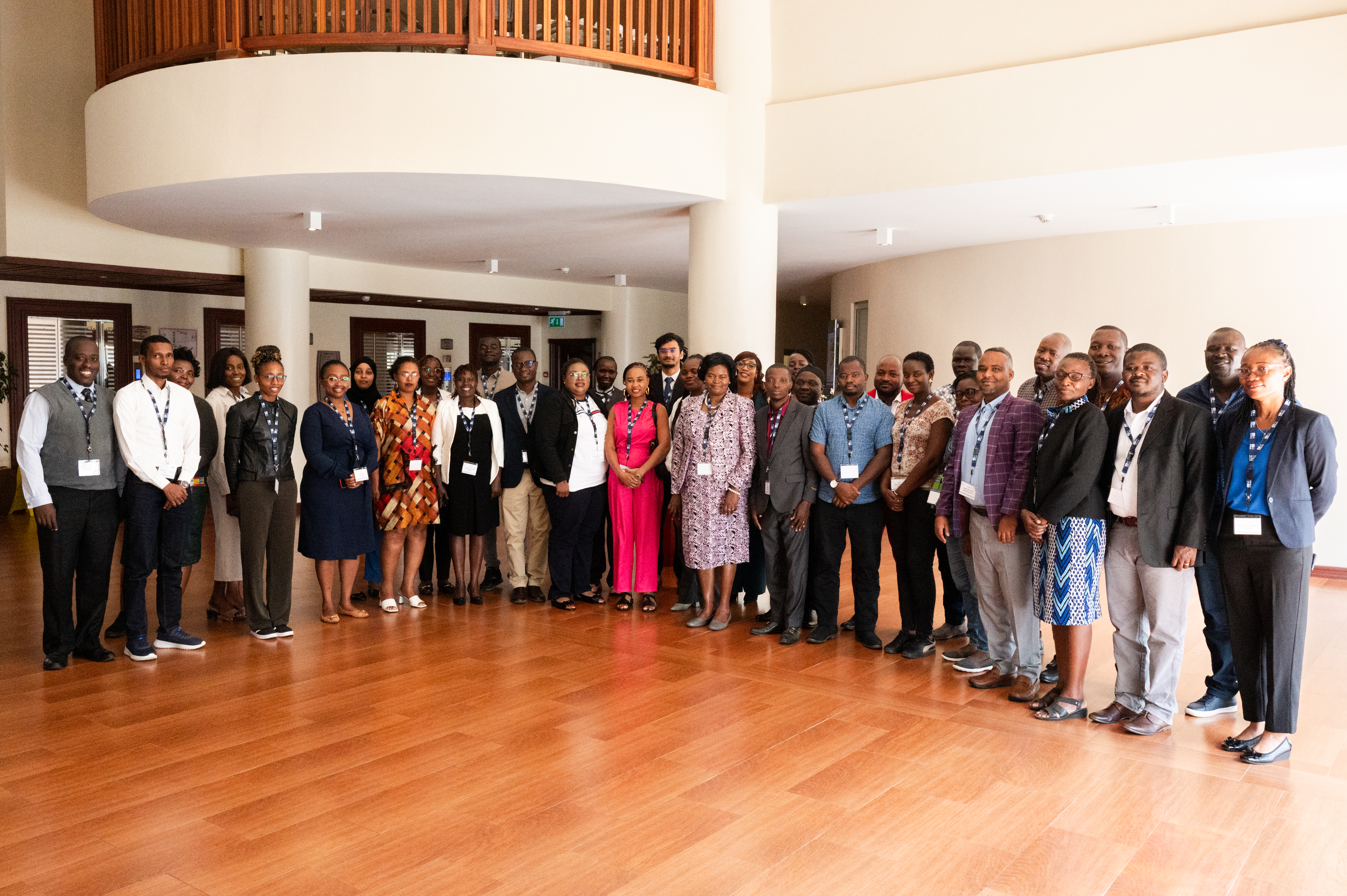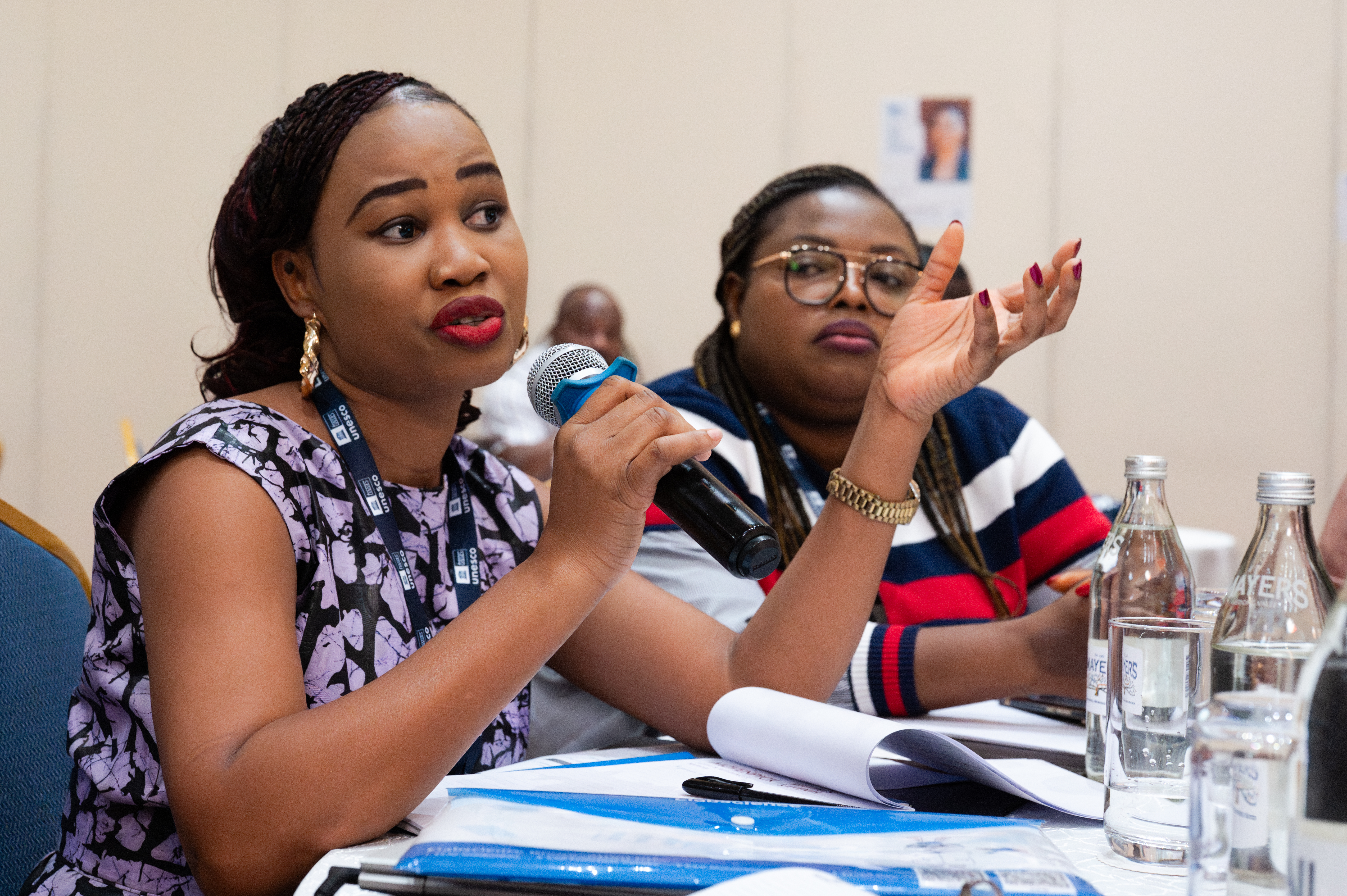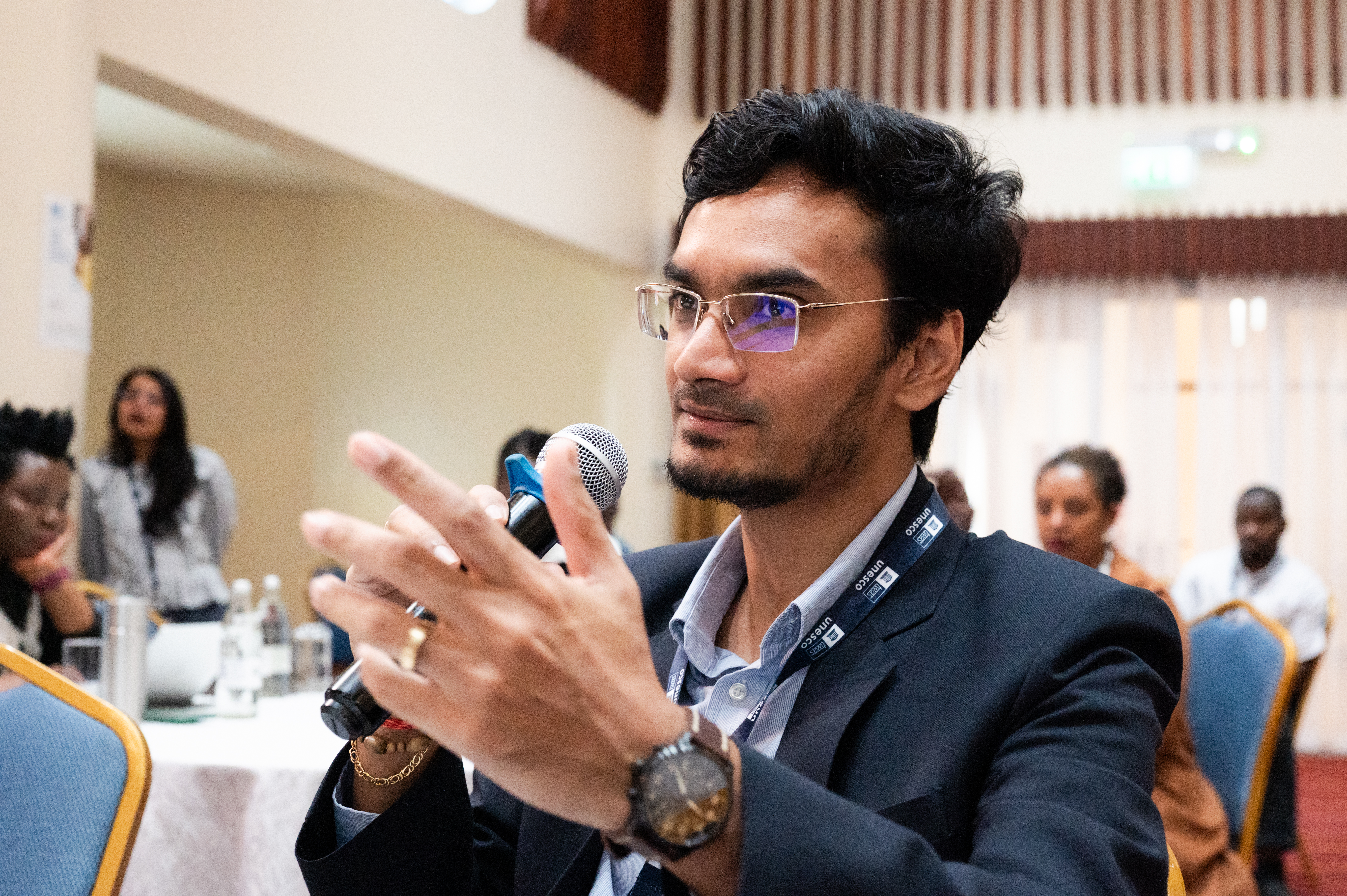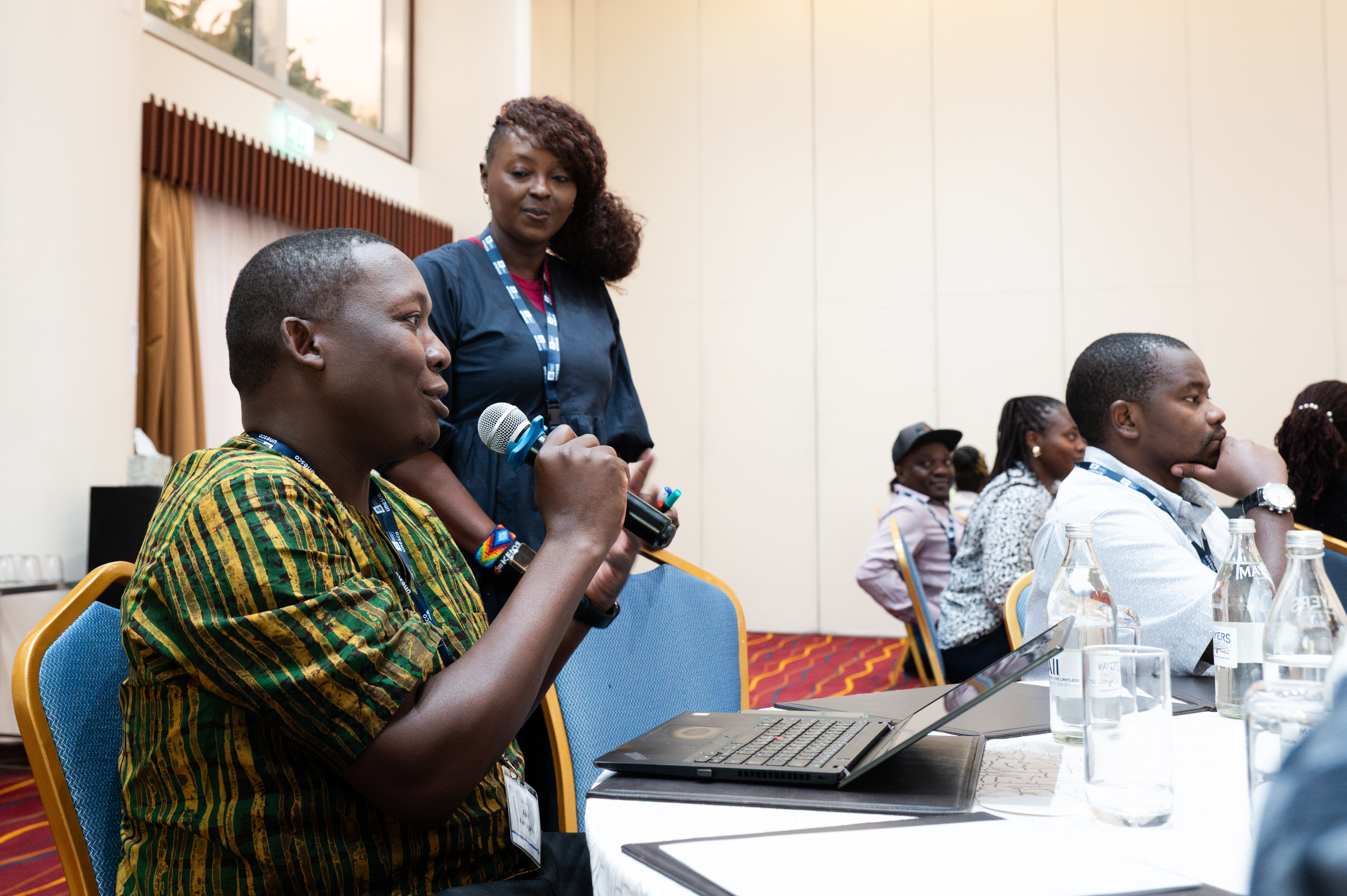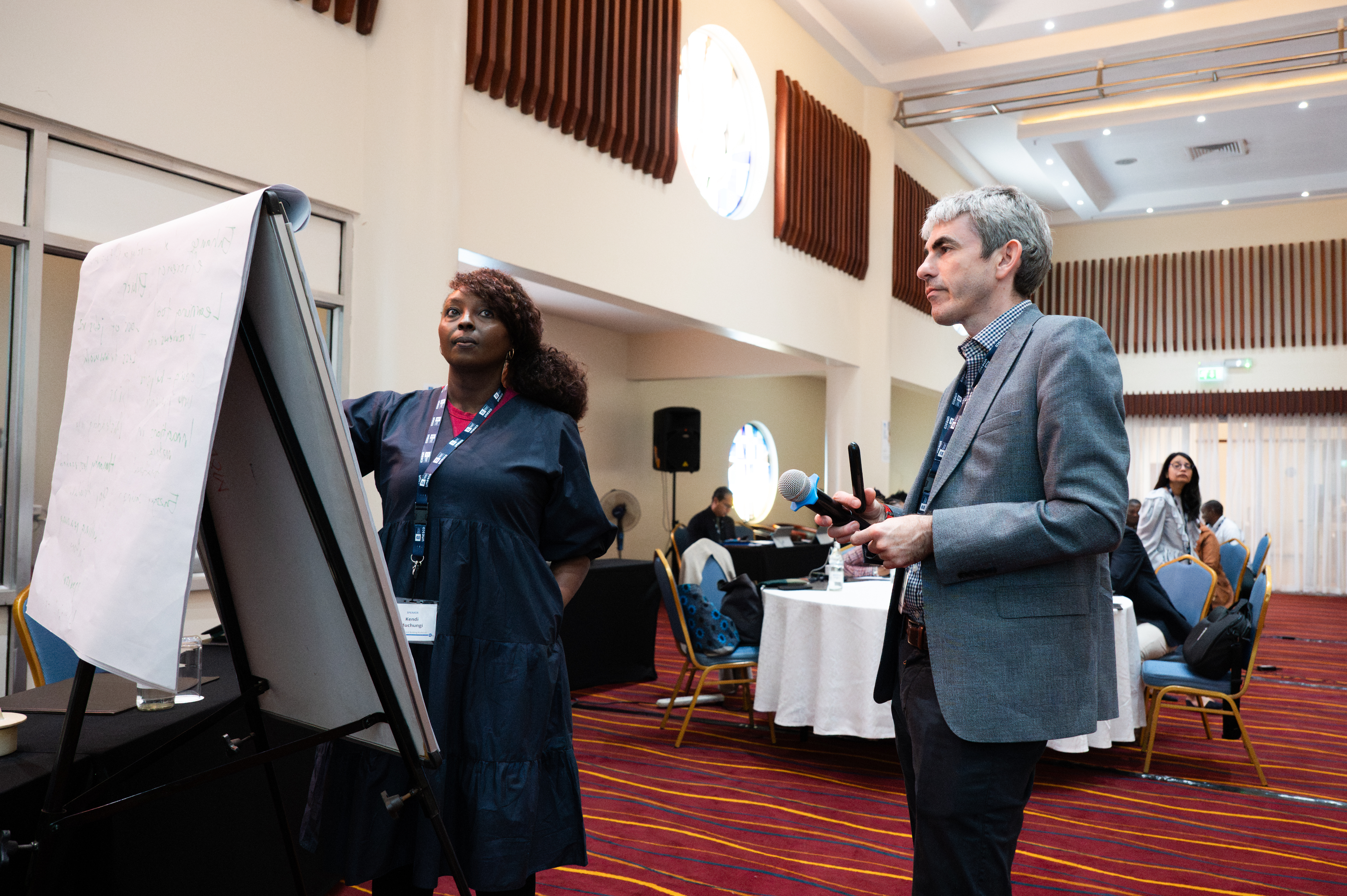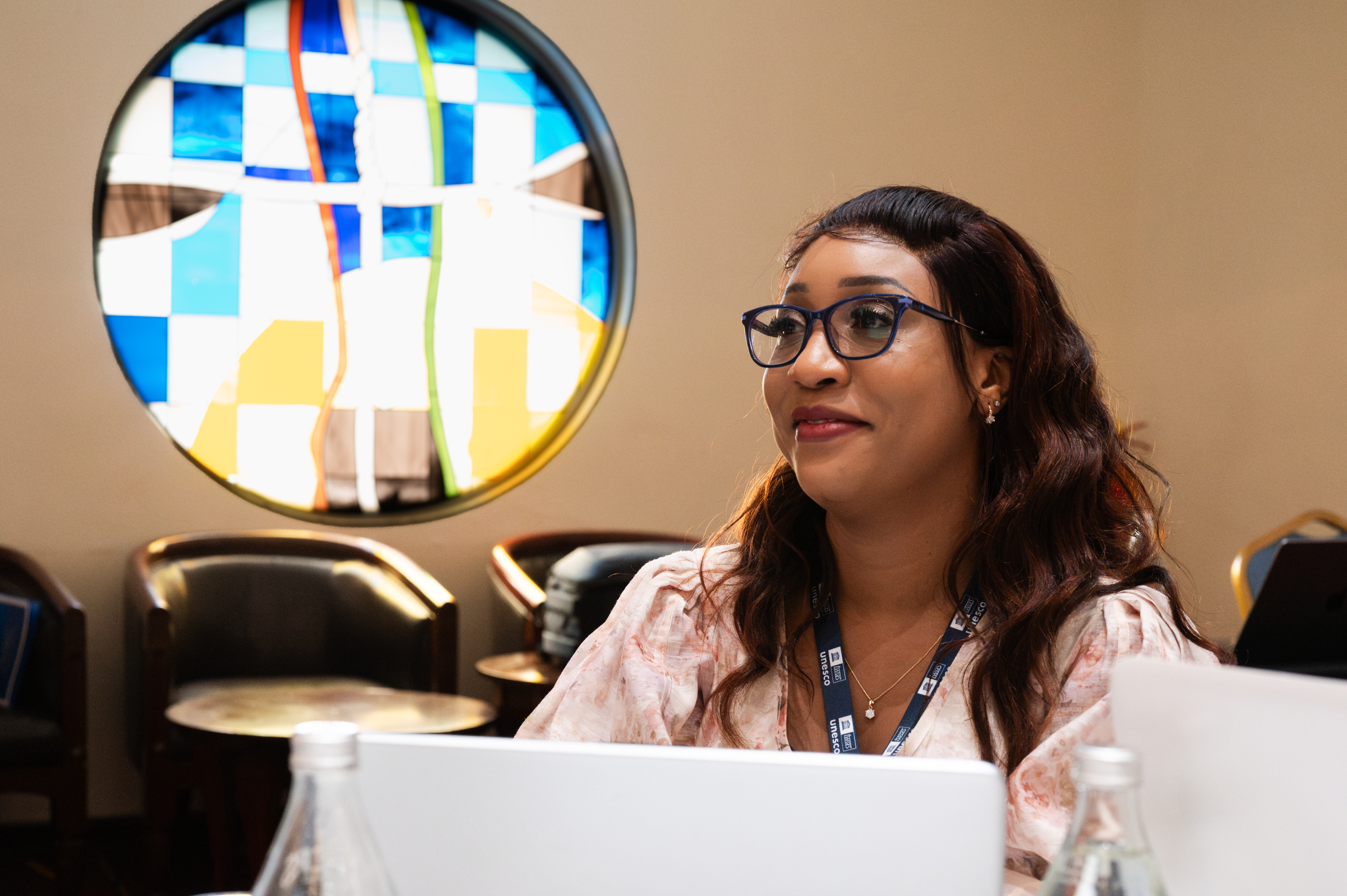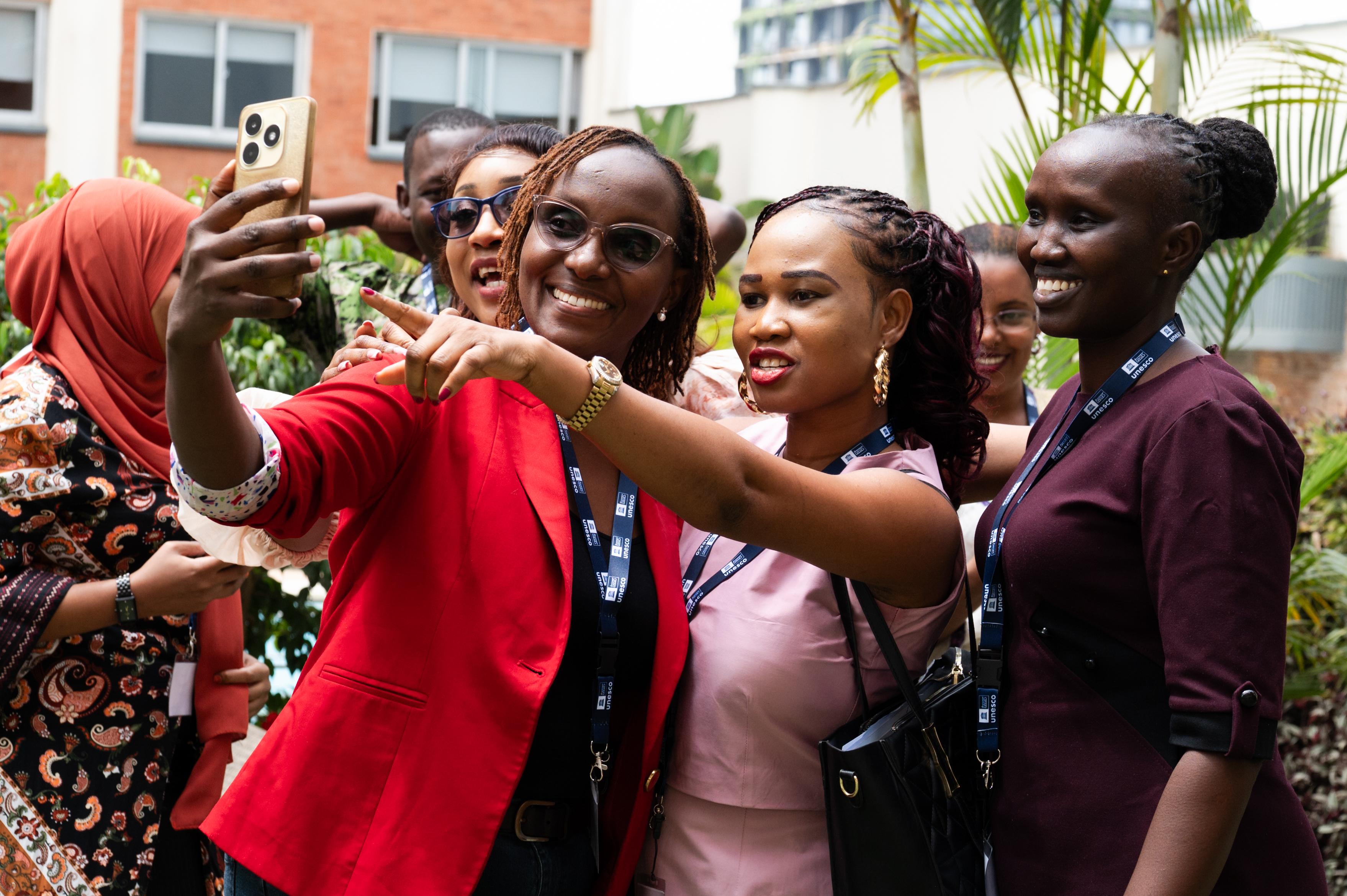Nairobi, Kenya – The 2025 TWAS Skill Building Workshop equipped 28 early-career African scientists with new tools to advance their research and foster collaboration across the continent. Over three days, they gained knowledge in scientific writing, responsible AI, science communication, importance of mentoring, networking, and relevance of transdisciplinary research.
Organized by The World Academy of Sciences for the advancement of science in developing countries (TWAS), the workshop took place on 21–23 October 2025 in Nairobi, the capital of Kenya. It is a key component of the Seed Grant for New African Principal Investigators (SG-NAPI) Programme, which receives support from Germany’s Federal Ministry of Research, Technology and Space (BMFTR).
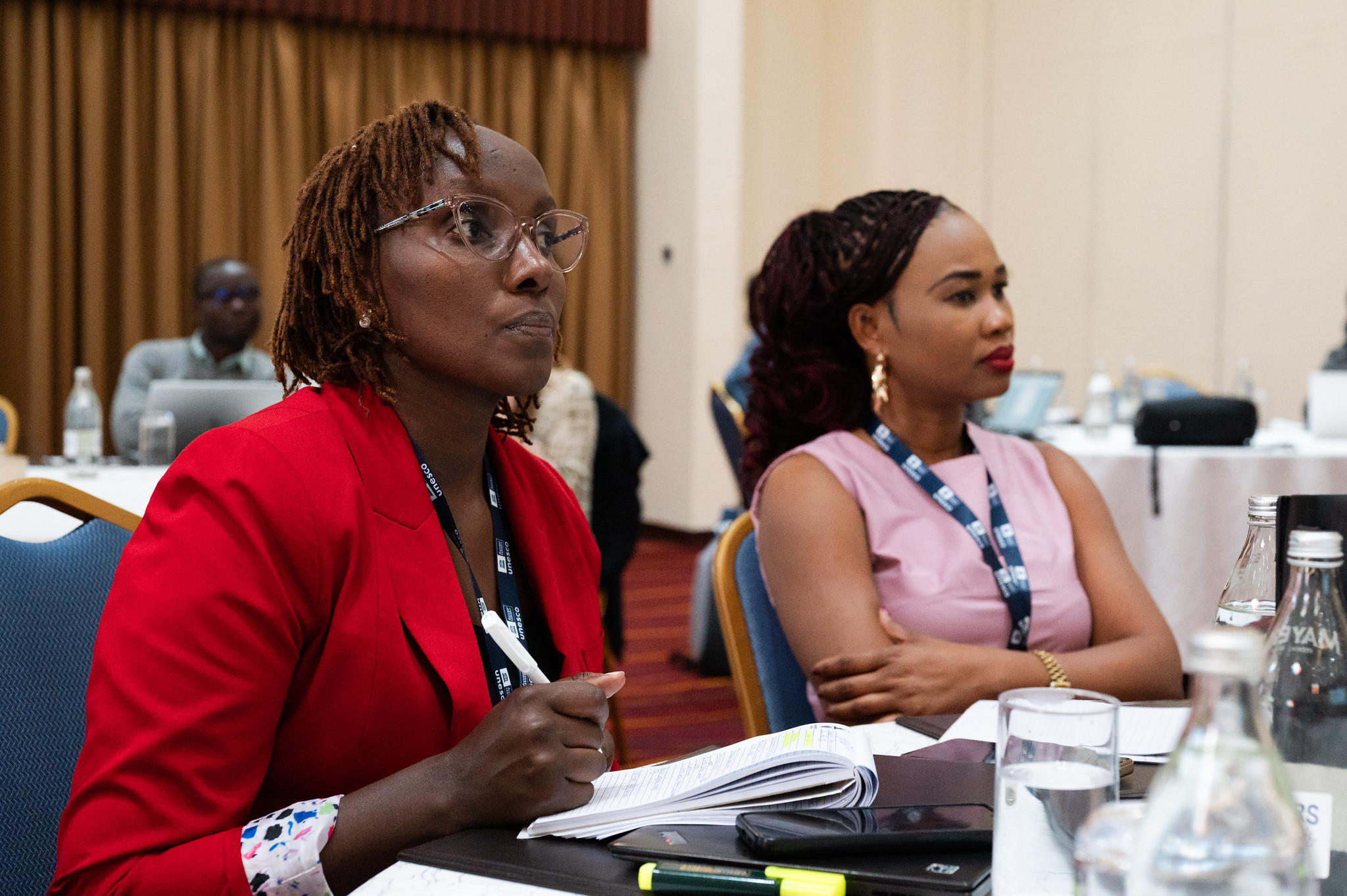
Voices of leadership
Kenyan TWAS Fellow Catherine Ngila delivered the keynote lecture, setting the tone for the vision of the event. “We need to aspire to be world-class research institutions,” she said, adding that scientific excellence, including prudent management, strong leadership, and continuous professional development are pillars of such institutions.
She also warned that poor institutional practices, such as delays in releasing grant funds, can “kill the morale of researchers.” Universities in particular, she urged, must strengthen their research infrastructure and avoid becoming “glorified high schools” that function only as teaching institutions with no priorities in research and innovation.
“Science needs to produce real-world results”, Ngila said, challenging attendees to consider how their research has an impact on their local communities. Research work should also directly connect to the UN Sustainable Development Goals (SDGs), she said, and encouraged participants to embrace collaboration. “Partnerships are very important. You can start one right now,” she said.
In addition, TWAS Fellow Shaukat Abdulrazak joined the event to address participants. He likewise urged participants to share knowledge and uphold the integrity of research. “Africa depends on you,” he said, emphasizing the need of aligning research with Africa’s development priorities, including the African Union’s Agenda 2063 and SDGs.
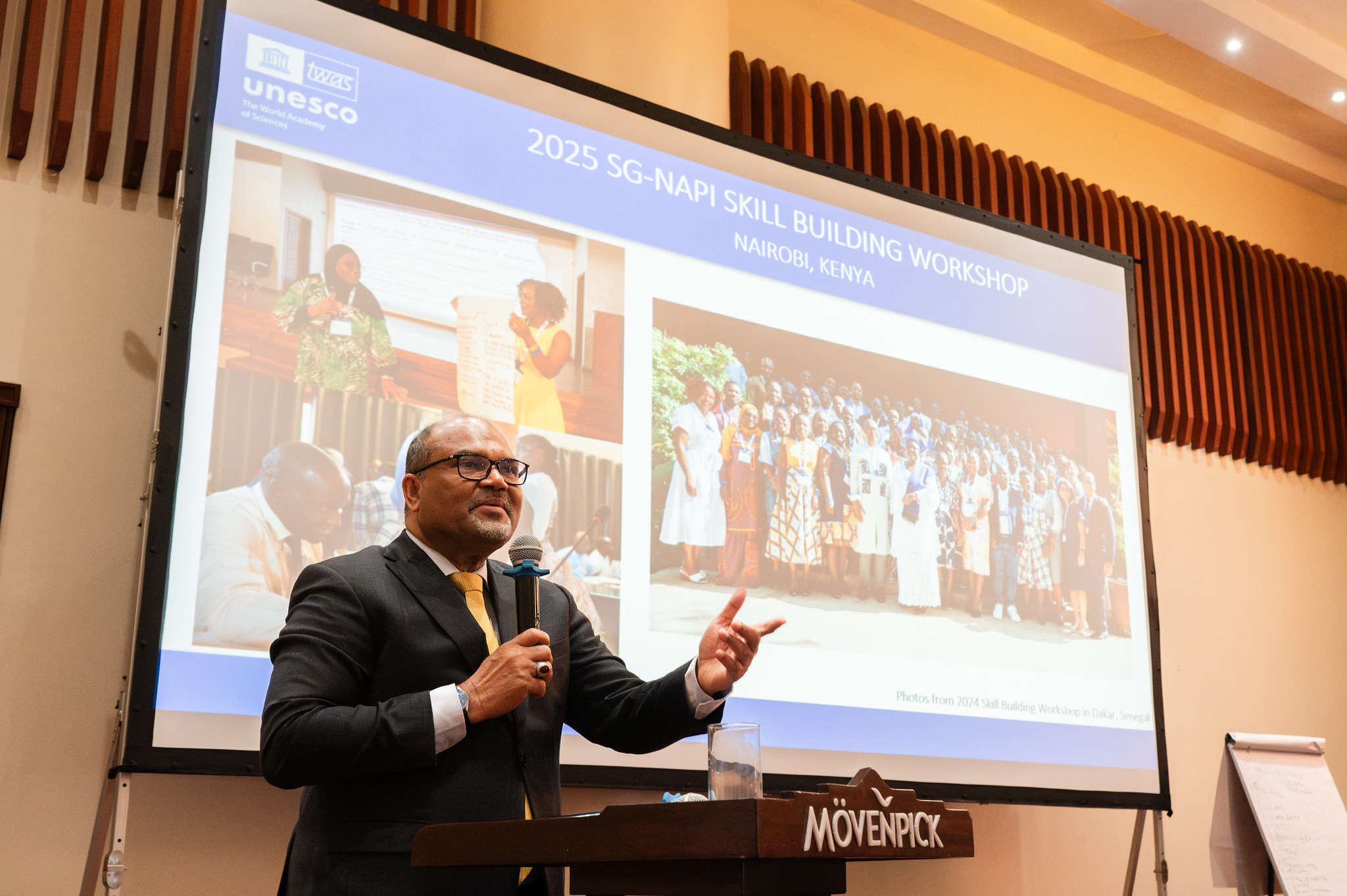
Abdulrazak underscored the importance of real-world issues such as food fortification, child stunting, cancer diagnosis, and access to clean water, while warning against predatory publishing. “Science must have an impact in society. Otherwise, in my opinion, it is not useful,” he said. Abdulrazak also championed cross-border mentorship. “Imagine a student being mentored by scientists from three different countries. That’s the kind of cross-pollination we need,” he said.
Practical skills for African researchers
During the workshop, participants strengthened essential skills to navigate modern science. Among the speakers were two Nairobi-based recipients of Sida-supported TWAS Research Grants, who shared practical strategies for overcoming career challenges.
Njeri Irungu, a research scientist at the Kenya Medical Research Institute (KEMRI) and the recipient of an individual grant in 2015 and of a group grant in 2022, led sessions on scientific research and writing, and combatting predatory journals and conferences.
“The workshop has been excellent. I’ve enjoyed every session, and I appreciate how attentive and engaged the participants are. It’s truly an interactive and dynamic experience,” she said.
Ezekiel Mugendi Njeru, a microbiologist at Kenyatta University, underscored how important transdisciplinary research is for Africa’s sustainable development. Researchers should not work in isolation, he said, and complex issues such as hunger and biodiversity loss require the kind of new ideas that emerge only when researchers from different fields collaborate.
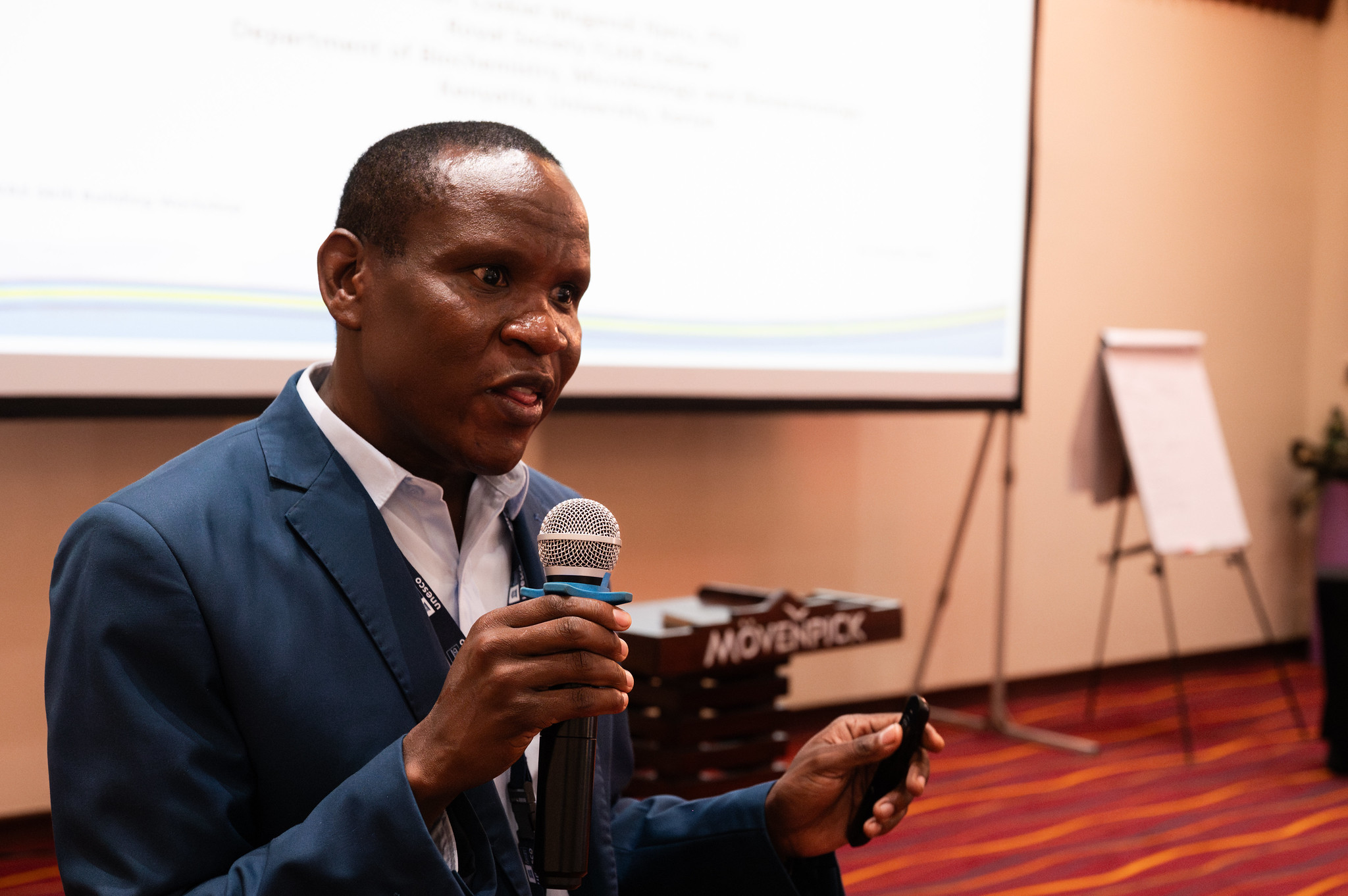
Njeru also highlighted the value of international support in shaping scientific careers. “The funding amount is important, but the TWAS name is extremely important as well. After receiving the TWAS Research Grant in 2016, doors opened for me,” he said, underscoring how prestige can be as impactful as funding.
In another session, Jon Harle and Kendi Muchungi of the International Network for Advancing Science and Policy (INASP) explored responsible use of Artificial Intelligence (AI) in research.
“Researchers must remain actively engaged: AI can assist with reading, but it cannot replace the critical thinking and understanding that come from human reflection,” warned Harle.
He cautioned that over-reliance on AI makes research more homogeneous by reinforcing established methodologies and focus areas, potentially creating “scientific monocultures.” Responsible AI use, he argued, means not only checking the outputs but also questioning what and who is missing from the data that shapes them.
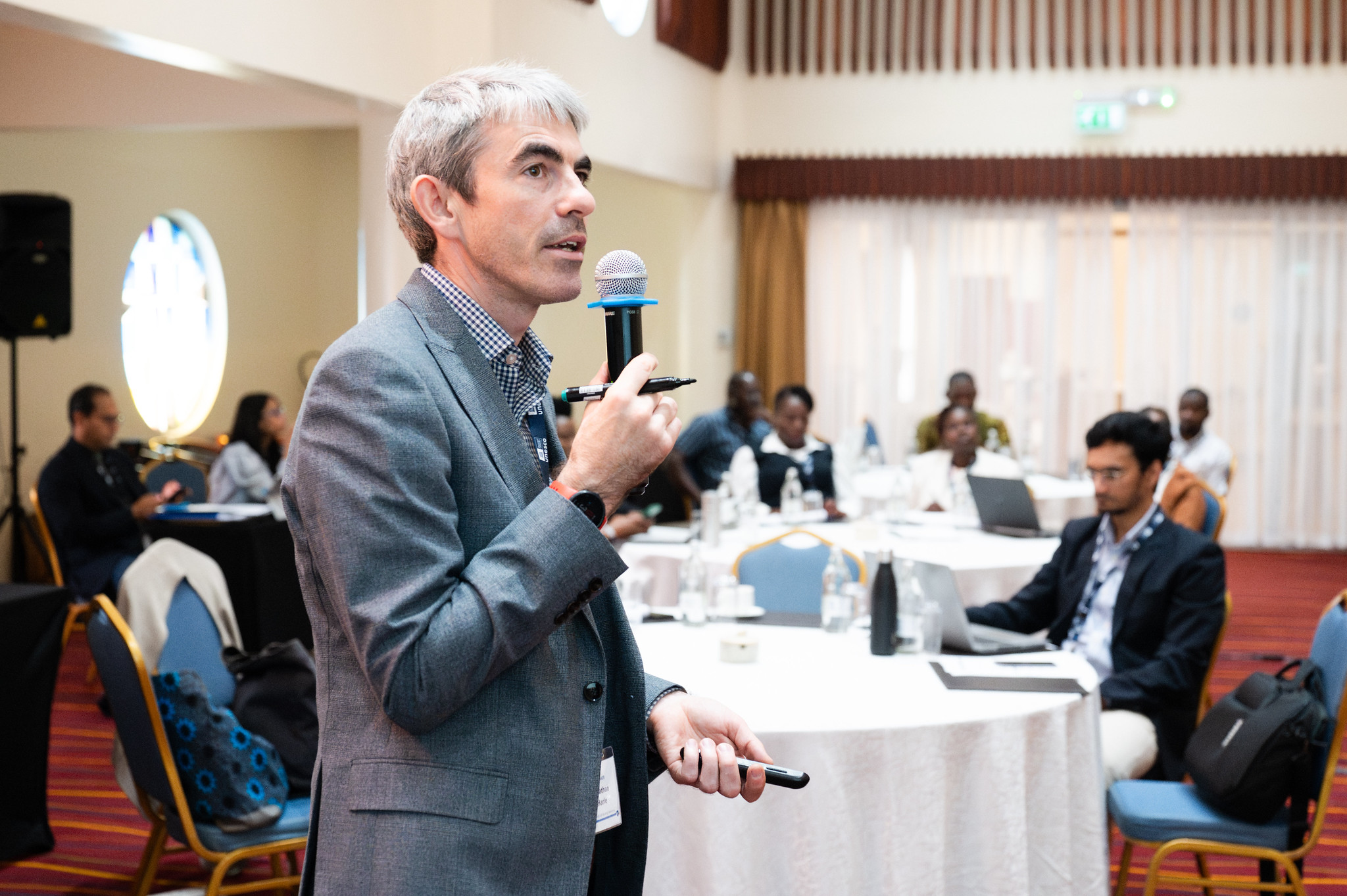
A career-boosting experience
Participants hailed from 16 countries—Benin, Cameroon, Djibouti, Ethiopia, Gabon, Ghana, Kenya, Malawi, Mauritius, Namibia, Nigeria, Somalia, Tanzania, Uganda, Zambia, and Zimbabwe— and represented diverse fields, from agriculture to chemistry and medical sciences. The event offered them the chance to connect with like-minded innovators, reflect on how their BMFTR-supported research can advance the SDGs, and explore collaborations.
“Attending the TWAS Skill-Building Workshop was a truly transformative experience,” said Emilia Inman, an ecologist and senior researcher at the University of Namibia. Inman is currently working with the Himba people, an Indigenous community in northern Namibia, to confront land degradation and climate change. Her work focuses on restoring rangelands, helping communities diversify their livelihoods, and promoting projects that strengthen both the environment and the people who depend on it, all through strong community partnerships.
“I was deeply inspired by the speakers who showed that it’s possible to conduct research that changes lives and shapes the future of Africa and beyond. Their insights on navigating the research world, gaining visibility, and translating science into real-world impact were invaluable.”

Chemist Abdirahman Elmi, a researcher at the Institut des Recherches Médicinales (IRM) at the Centre d’études et de recherche (CERD) of Djibouti, called the event “an incredible opportunity” to enhance both his scientific skills and his professional network. Elmi is studying the chemical makeup and possible cancer-fighting properties of essential oils extracted from Cymbopogon plants, a group of aromatic grasses such as lemongrass, which grow in Djibouti.
“My research aligns with the growing need for climate-resilient and sustainable development in our region, as we seek solutions that integrate local biodiversity with modern healthcare challenges,” he noted.
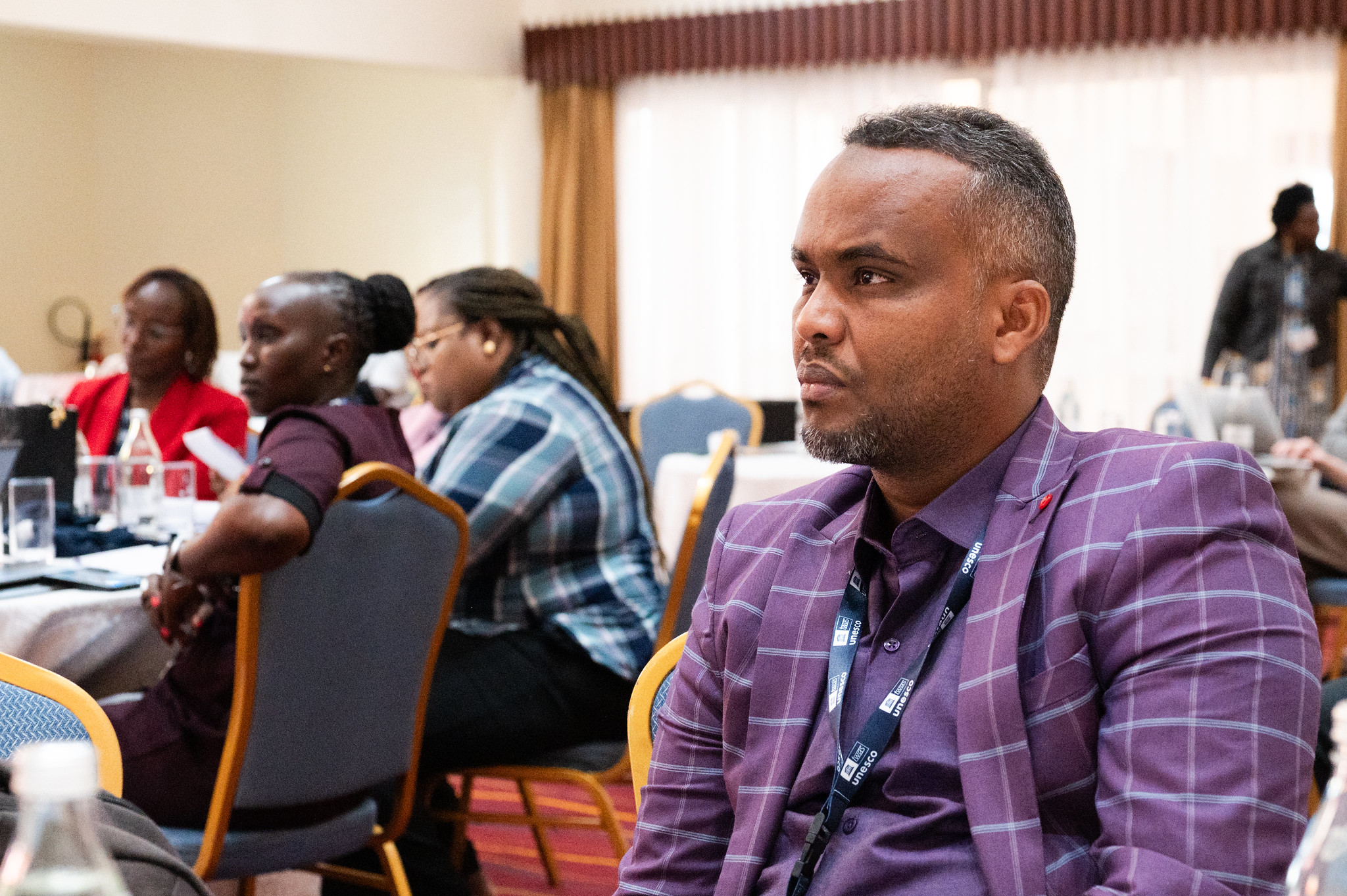
“The sessions on responsible AI, science communication, and transdisciplinary collaboration were particularly inspiring, as they demonstrated how data-driven approaches and cross-disciplinary networks can accelerate innovation,” said chemist Kudzai Mugadza, a researcher and deputy director at the Institute of Materials Science, Processing and Engineering Technology at Chinhoyi University of Technology in Zimbabwe.
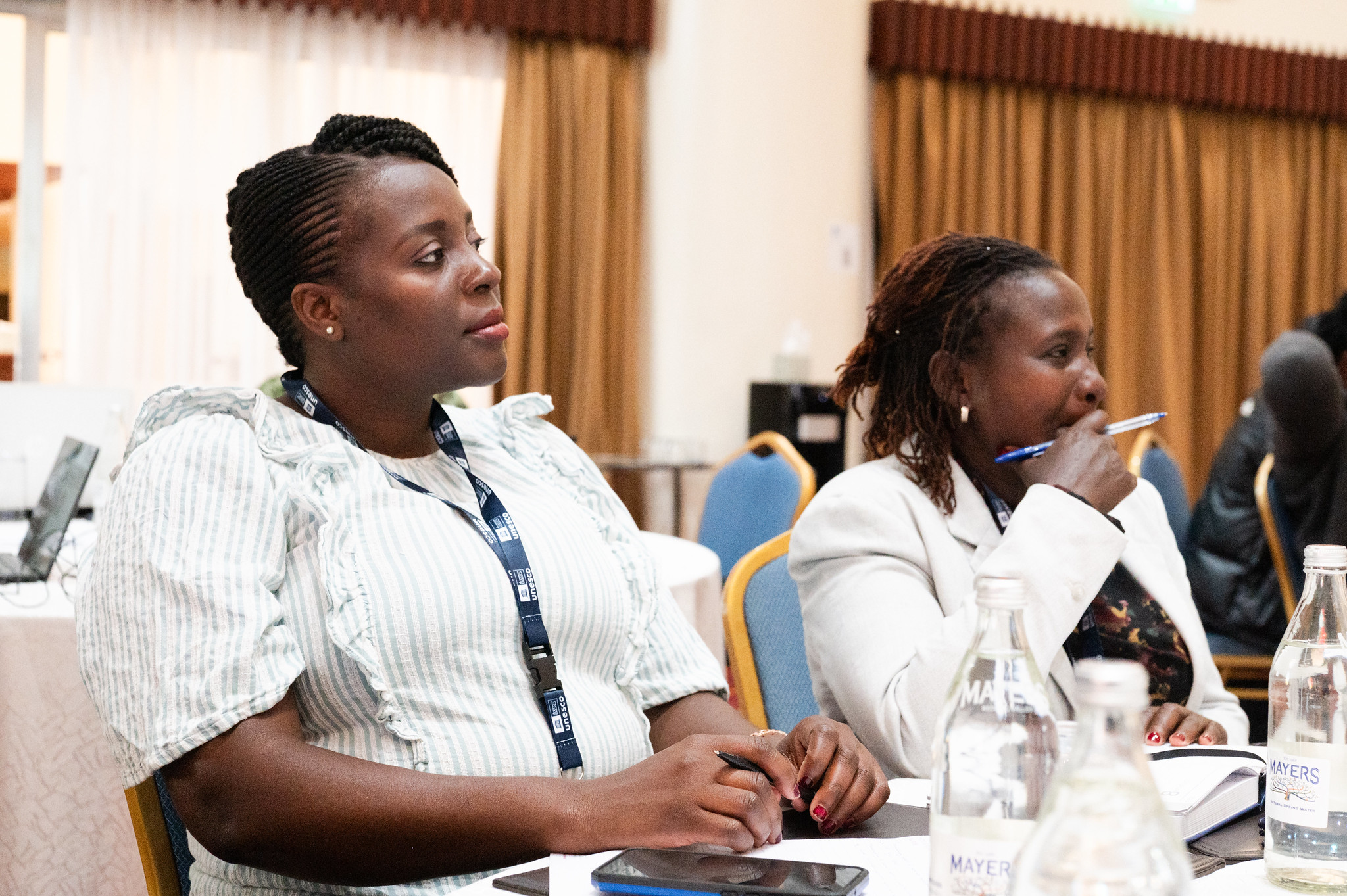
“I am sincerely grateful to TWAS and BMFTR for the research grant and for providing this exceptional platform, as well as to my academic mentors, and the facilitators who generously shared their expertise throughout the workshop. The insights, connections, and skills that I have gained will greatly strengthen my research leadership and expand opportunities for collaboration across Africa,” she said.
Giovanni Ortolani
More photos are available here and on the TWAS Flickr page
